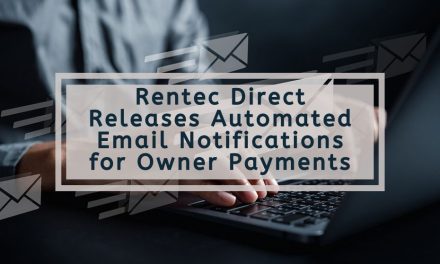
Shortly after a published investigation of the impact YieldStar software (a RealPage product) had on rising rent prices, tenants banned together last week in a proposed class-action lawsuit against RealPage and nine major residential landlords. These parties are now facing federal antitrust litigation.
ProPublica, a nonprofit newsroom investigating abuses of power, reported that the software rent-setting algorithm might have helped push rents up past what would have occurred naturally. The increase was significant from access to the shared competitor data on actual rents paid versus what would have happened if data had been based on advertised market rents.
You can read the investigative article here: Rent Going Up? One Company’s Algorithm Could Be Why.
The group of renters purport that RealPage’s YieldStar software provided aggregate private competitor data to landlords to help them set prices could find RealPage and the defendants facing charges for violating federal antitrust laws.
According to the ProPublica article,
“Experts said that RealPage also sponsors meetings that gather competitors together to talk about pricing, which could also be a warning sign of collusion.”
According to a follow-up article, ProPublica states,
“RealPage boasts that it helps landlords outperform the market by up to 7% — that is, its software users can expect better-than-market-average revenues, even in weak markets. Greystar, the largest property manager in the U.S., outperformed its markets by 4.8% in one downturn, according to RealPage materials.”
Learn More | 5 Takeaways From Our Investigation Into RealPage’s Rent-Setting Algorithm
Currently, along with RealPage, only nine defendants are named in the lawsuit:
GreyStar Real Estate Partners LLC
Lincoln Property Co
FPI Management Inc
Mid-America Apartment Communities Inc
Avenue5 Residential LLC
Equity Residential
Essex Property Trust Inc
Thrive Communities Management LLC
Security Properties LLC
Four of the nine defendants named in the lawsuit are ranked in the top 20 largest apartment owners. Those four landlords manage over 275,000 units alone. That total doesn’t include the properties managed by the other five prominent players and countless other landlords from the over 30,000 RealPage clients who may have also used the pricing software to make rental rate decisions.
Rent Pricing Guidelines
Whether the lawsuit rules in favor of the renters, determining the defendants participated in collusion, remains to be seen. But we know that competitive behavior allows the economy and market segment to find an equilibrium based on supply and demand.
Although cooperative behavior is helpful in some business areas, it can be considered a monopoly influence. It is unlikely that landlords purposefully conspire to inflate the cost of renting. Still, by using the same aggregate data, it may have formed a type of cartel of landlords, which may have influenced other landlords without access to the data to raise prices to match – burdening the unsuspecting renter with an undue price increase.
Most property management licensing programs and regulations outline best practices to create a market rent analysis to set appropriate rental pricing. In addition, state and local regulations may have set criteria for having renters, such as rent caps and rent control ordinances. State regulations on how often rents can increase may have additional rulings during times of global or localized crisis.
Tip: Renters and landlords can contact their city’s rent control board, local tenants’ organizations, housing authority, and state real estate board to learn more about local and state regulations.
Market Rent Analysis
In addition to knowing the federal, state, and local laws on rent increases, learning how to conduct a property market rent analysis can help landlords set rent pricing and decide the subsequent rent increase to help avoid any possibility of collusion.
A market rent analysis takes time to locate comparable properties and conduct research. But the time you invest will help you stay competitive without unduly overpricing or underpricing your inventory.
Market Analysis Criteria to Remember
In addition to finding comparables of size, bedrooms, bathrooms, property type, and location, landlords often need to remember to research their competitors’ concessions and special offers and property, building, and apartment amenities.
Another indicator that your competitors’ pricing may be out of alignment with the market or property appeal would be to find out how long their vacancies have been available. This information is called Days on Market (DOM) and evaluates the demand for their offering.
Remember other comparables such as walkability scores, proximity to shopping, entertainment, and dining, and other special interests your location may hold over your competitors.
The Importance of Compliant Software
A critical takeaway from this news event is the importance of evaluating your property management software (or landlord software) to ensure it complies with federal regulations. Check to make sure it is flexible to allow customization for landlords and property managers to meet state and local regulatory criteria.
Aggregate data, such as reports and white papers to education on trends, can be beneficial. But, if you are offered predictive data, ensure it doesn’t violate antitrust laws or put you in a position to defend your choices for lease or rent changes against natural market fluctuations.
Although it is tempting to streamline the process with third-party data, your personal market research will help you make the best decisions for your business, and the renters and owners you serve which keeps the market in balance and protects you from costly lawsuits.





